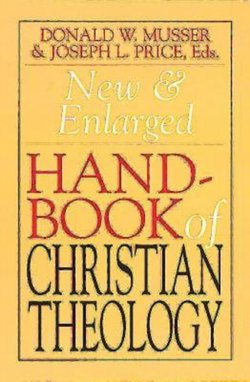Читать книгу New & Enlarged Handbook of Christian Theology - Donald W. Musser - Страница 28
На сайте Литреса книга снята с продажи.
ОглавлениеBEING/BECOMING
Alfred North Whitehead contended that the hymn lines “Abide with me; fast falls the eventide” set forth “the complete problem of metaphysics.” “Abide” speaks for constancy and “falls” for change. The question of the relative weight to be given these testimonies is the problem of Being and Becoming: whether being is more basic than becoming, or becoming more basic than being. The answer hinges on how God, history, human nature, and nonhuman nature are characterized.
People who argue that being is more basic affirm that constancy gets at the heart of things more than change, while people who argue that becoming is more basic affirm just the opposite. If being is more basic, then what is truly divine, historical, human, or natural must be unchanging and, it is usually added, universally the same; but if becoming is more basic, then what is truly divine, historical, human, or natural must be changing and, it is usually added, different in different situations.
The issue is historic. The pre-Socratic Parmenides of Elea argued that what is “simply is—now altogether, one, continuous,” while the pre-Socratic Heraclitus of Ephesus argued that “everything flows and nothing abides.” It is safe to say that Parmenides’ bias toward being prevailed in Western philosophy and theology until the twentieth century, when modern physics (particularly quantum physics) argued that events are most basic and that these events in some respects are indeterminate, perhaps even innovative. Nevertheless, determinisms in natural science (e.g., the chance-free world of relativity physics) and in social science (e.g., the predictable world of sociobiology) remain strong, and they place greatest emphasis on being-like continuities.
All general thinkers, whatever their tendency, must have some way of accounting for the side they de-emphasize. Accordingly, Plato, a philosopher of being, will account for becoming, locating it in the “less real” world of ordinary events. Equally, Hegel, a philosopher of becoming, will account for being, locating it in the Absolute to the extent that it provides the rational impetus for all that happens. While some—for example, Charles Hartshorne—aspire to give equal weight to being and becoming, it can be argued that coherence requires, finally, that an implicit if not an explicit preference be given to one side or the other.
As one type of general thinker, theologians may favor either being or becoming, and they too must account for the side they de-emphasize. Those who emphasize being are heavily affected by ancient Greek philosophies of being; those who emphasize becoming are heavily affected by ancient Hebrew interpretations of history. In the former tradition God is closely associated with ahistorical being, human souls participate in that being, and both are everlasting; but this tradition usually allows, even if unwittingly, that God changes enough to absorb effects of the world and that souls change enough to be subject to corruption. In the latter tradition God is closely associated with historical becoming and people are formed largely by historical circumstance; yet even amid historical flux these theologies find in God a consistent influence and in people a personal identity through time.
Today’s theologians of being find the deepest threat to life’s worth in the moral, spiritual, or intellectual incompleteness that comes from falling away from being, so that fulfillment lies in the communion with being that gives eternal life, forgiveness, or meaning. Today’s theologians of becoming find the deepest threat to life’s worth in the loss of an aesthetic sense of becoming, so that fulfillment lies in the communion that overcomes what William James called tedium vitae.
In recent theology of being, reality is found beyond history; followers of Karl Barth, narrative theologians, and fundamentalists look to continuous traditions while followers of Paul Tillich look to ontological absolutes. These theologians must explain how a theology based on what is eternal and, usually, universal can be credible in a world where change seems so basic. In recent theology of becoming, reality is found within human and natural history; empirical theologians or postmodern theologians ranging from neopragmatists, to deconstructionists, to new historicists look to the changing testimonies of nature, language, or culture. These theologians must explain how a theology that places trust in what is transitory and, usually, local can remain appropriate to a consistent religious tradition. In recent anti-metaphysical theologies both being and becoming are treated in principle as meaningless metaphysical abstractions; linguistic theologians, for example, make this anti-metaphysical move. These theologians must explain how it happens that in practice they favor being-like constancy or becoming-like change.
WILLIAM DEAN
Bibliography
Charles Hartshorne and William L. Reese, Philosophers Speak of God.
Paul Tillich, Systematic Theology, vol. 1.
Henry Nelson Wieman, Religious Experience and Scientific Method.
Cross-Reference: Existential Theology, Metaphysics, Panentheism, Philosophical Theology, Process Theology.
BELIEF (See DOGMATIC THEOLOGY, FAITH.)
